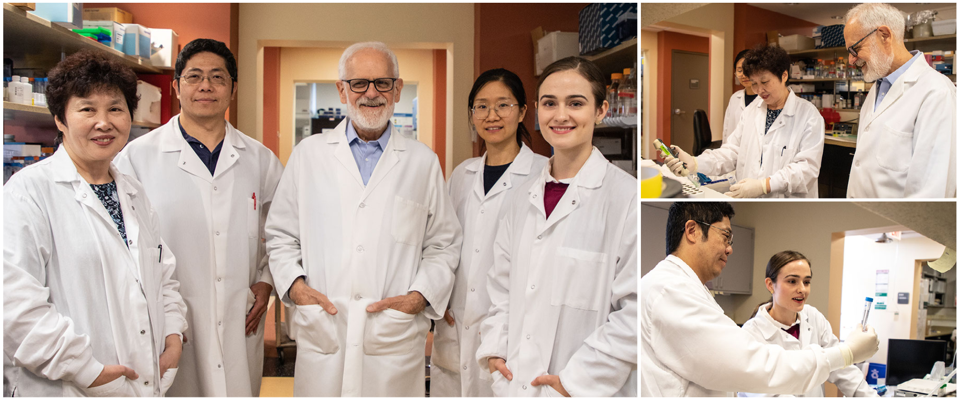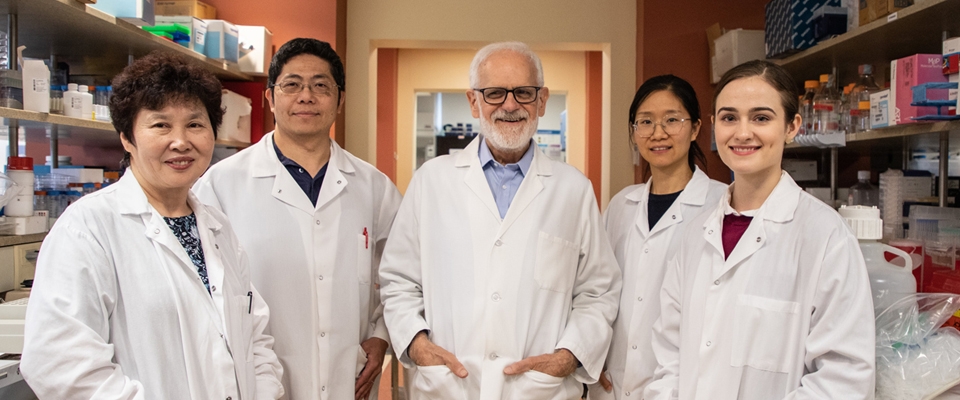You are here

Burke Neurological Institute Receives a $45 Million NIH Grant to Study a Vitamin B1 Precursor for Treatment of Alzheimer’s Disease in Multi-center Clinical Trial
WHITE PLAINS, NY, July 7, 2022 — The Burke Neurological Institute (BNI) has received a five year award expected to total $45 million from the National Institutes of Health (NIH) to launch a large-scale, multi-center clinical trial to evaluate benfotiamine, a synthetic precursor of thiamine (vitamin B1), as a potentially effective therapy for mild Alzheimer’s disease (AD) or mild cognitive impairment (MCI). This follow-up trial will expand on previous work completed at BNI, suggesting that high levels of benfotiamine significantly slowed the rate of functional decline in participants with mild cognitive impairment or early AD.
“It is gratifying to see research which the Alzheimer’s Drug Discovery Foundation initially identified as promising and supported in a pilot study continue to be pushed forward with funding from the NIH’s National Institute on Aging,” said Dr. Howard Fillit, Co-Founder and Chief Science Officer of the Alzheimer’s Drug Discovery Foundation (ADDF). “With the improved biomarkers that have been developed since the pilot, this next phase will provide a deeper understanding of how benfotiamine works in the brain. Novel approaches that target the many biological factors which contribute to Alzheimer’s, like metabolic dysfunction, are essential to finding effective treatments for this disease.”
Dysfunction in the brain’s ability to metabolize glucose is a known marker of AD and other dementias and can begin decades before a person has clinical symptoms or memory loss. Previous work by Burke Neurological Institute/Weill Cornell Medicine researcher Dr. Gary E. Gibson, who will also be a leader of the upcoming clinical trial, suggested that reduction in glucose metabolism is due to a decline in thiamine-dependent processes. Using multiple experimental models, he and others have shown that increasing thiamine to very high levels via benfotiamine was protective against Alzheimer’s-like symptoms.
Dr. Gibson noted, “I am particularly excited about this trial because it will determine how relevant these decades of research are to the treatment of Alzheimer’s disease. If our hypothesis is correct, we will advance an exciting investigative clinical treatment pathway relevant for millions of patients, and with potential advantages in safety and value.”
These foundational experiments led to a recent pilot study, published in the Journal of Alzheimer’s Disease in 2020 and carried out by Dr. Gibson along with research partners at Weill Cornell Medicine, Burke Rehabilitation Institute, and Columbia University Irving Medical Center. The study suggested a slowed rate of cognitive decline in 35 participants with mild MCI or early AD who took 300-mg benfotiamine pills twice daily, and the treatment was completely safe.
The larger upcoming clinical trial will be carried out in collaboration with leading researchers in AD and related dementias; Dr. Howard Feldman, director of the Alzheimer’s Disease Cooperative Study (ADCS) at the University of California, San Diego and Dr. Jose Luchsinger, investigator at Columbia University Irving Medical Center.
“We are excited to receive this funding which will enable the further testing of benfotiamine through to its clinical proof of concept, including adaptively testing for the optimal dose and treatment response across clinical and biomarker measures,” said Dr Feldman.
Dr. Luchsinger stated “I have been conducting research to understand the metabolic contributions to AD for 20 years and believes that understanding the role of thiamine in AD is an important step in this field.”
Enrolling roughly 400 patients in up to 50 US-based clinical trial sites, with study coordination by the ADCS, will support the new study to be among the first to select patients and follow progression over 18 months, using several measures, including cognitive tests and blood markers that signal AD and MCI status and progression. The trial will provide a larger and more robust evaluation of benfotiamine’s potential use in treating AD by following cognitive measures as well as a number of blood markers that reflect the brain’s glucose use, neuron loss, inflammation, and even aspects of brain pathology. These promising blood markers to track AD progression have themselves been under investigation for many years and represent the cumulative work of researchers across the globe.
Additional academic institutions partnering with BNI to support this trial include the University of Gothenberg (Gothenberg, Sweden), the University of Cambridge (Cambridge, United Kingdom) and Georgetown University (Washington, DC). BNI is also pleased to collaborate with C2N Diagnostics (St. Louis, MO), a company focused on advanced brain health diagnostics.
There is enormous unmet need regarding both treatment and prevention of AD in the growing and aging population. More than six million Americans are living with AD, which is forecasted to rise to nearly 13 million by 2050. Globally, the prevalence of AD is projected to rise from 57 million to 153 million in 2050. There is no true cure for the disease and no effective treatments exist. Clinical trials over the last decade have frequently failed, and the most recently approved therapy has been met with controversy regarding efficacy, safety, value and pricing. Treatments for AD and MCI that are effective, safe, and affordable are critically needed across the globe.
Enrollment of trial participants is expected to begin in the first quarter of 2023.
The Phase II randomized controlled trial of benfotiamine in early Alzheimer's Disease is funded by NIH grant R01AG076634.















